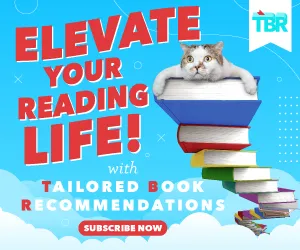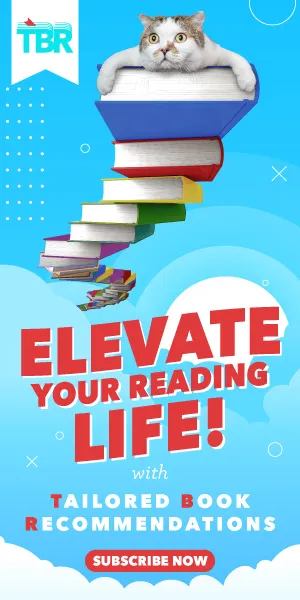
Why I Won’t Be Watching This (or Any) Little Women Adaptation
This content contains affiliate links. When you buy through these links, we may earn an affiliate commission.
In a Critical Linking post, Amanda Nelson shared with our readers the new Little Women adaptation, based on Louisa May Alcott’s famous book, coming out from Masterpiece Theatre. When I first found out about it, my reaction was, for me, predictable. It looked a little something like this:
via GIPHY
In case that face needs translation: it is derisive, a definite NOPE face.
via GIPHY
Before I explain why I won’t be watching this, or any other, Little Women adaptation, I first need to take you on a bit of a trip down my personal memory lane. Because, you see, I was once a total adaptation purist.
Though I started reading late, I become a particular kind of book snob quite quickly. Maybe “book snob” isn’t even the right term… Perhaps it’s more correct to say that I became a “media snob.” I continued watching television and movies, but I started thinking that books were automatically better. In a sense, I still think this–I believe wholeheartedly that if I never saw another TV show or movie or even video game (and I love-love-love video games), I would be fine. Because I have books. And books have me. We have each other. Forever and ever.
But I’ve also come to realize that… okay, fine, yes, movies and television and video games and all other kinds of media have worth.
via GIPHY
The kind of purist I used to be, though, refused to watch any adaptation… or so she thought. See, the problem — or blessing in disguise — was that, unbeknownst to me, I had been watching and loving adaptations for years. There was a television series that I adored when I was a kid. It was called Emily of New Moon, and I watched it religiously every Friday afternoon while my parents were napping.
Years later, I discovered that it was based on – you guessed it – a book. A series of books. A series of books by the same author who wrote Anne of Green Gables. That’s right. Emily of New Moon is by L. M. Montgomery.
via GIPHY
Oops indeed.
I remember walking into the movie theater to watch the very first of the Harry Potter films. I was 11 when it came out, the same age that Harry is in the film. Walking into the theater, I was aware that this was the first time I was willingly and willfully breaking my rule. My “no movie of the book” rule. I’d only had that rule for two years (which was also how long I’d been a serious reader), but it was already deeply ingrained.
When the lights came down and that now-famous music swelled, I was enthralled. I teared up. I was so excited. And then… it all went downhill from there. Remember that moment when Snape first enters? Well, I know I may get some hate for this, but even though Alan Rickman is amazing, his Snape wasn’t doing it for me. He felt abrupt and hurried. Snape isn’t hurried. He never hurries. Snape is cold and calculated and part of what makes him terrifying and fascinating as a character is his long-suffering air of patience. His silences are often scarier than his words.
via GIPHY
The point is, I didn’t enjoy the film. I left the theater disappointed, and true to my former promise, I didn’t watch the other films as they came out. Moreover, I continued to be that annoying snob who says, “I don’t watch movies based on books.” My friends rolled their eyes, but I felt like a smart cookie and didn’t want to back down.
But every once in a while, I found myself bending. When the adaptation of Ian McEwan’s Atonement came out, I went to see it. I don’t remember why I agreed, but I did. Guess what? I absolutely adored it. It continues to be one of the best adaptations I’ve ever encountered. The movie captures the spirit, pacing, and atmosphere of the book so superbly that it feels as good as the book.
via GIPHY
(Plus, that green dress, #amirite?)
As the years passed and I grew up, I bent my rule more and more. Finally, I had to admit that I’d been pigheaded. Movies and TV shows can often make wonderful adaptations of books. They can both bring forth the spirit of the original and lend something entirely new and exciting. Despite all its issues, one of my favorite things about BBC’s Sherlock was the way it used modern day technology. Because of course a modern Sherlock Holmes would be extremely proficient in all things computers! He would never let any advantageous skill pass him by without mastering it, would he? No, he would not.
via GIPHY
Let’s come back to the present. I am now almost 27 years old, wearing my big girl pants, and have stopped being resentful about adaptations, by and large. However, some still stick in my craw. I still feel some are gratuitous, simply unnecessary. But that’s a personal feeling and not one that I subject on others anymore. I don’t tell people that I won’t watch adaptations. In fact, I’ve come to appreciate the art of adapting. And I usually avoid the adaptations I don’t want to see in relative silence.
So why am I speaking up about this one? Because Little Women has been the closest thing I have to a favorite book for a long time now. I reread the book every year, and find new information in it every single time. Louisa May Alcott’s prose and story have taught me tolerance and have shaped much of how I think. There are plenty of issues in the book; of course there are, as Alcott wrote it in the middle of the 19th century. Still, for her time, Alcott was incredibly forward-thinking. She was an abolitionist and an early feminist. I also have a personal connection with her in that she suffered from chronic pain and possibly died of an autoimmune disease (believed to be Lupus, though no one knows for sure).
I recently read Anne Boyd Rioux’s excellent piece in LitHub about the new adaptation of Little Women. Rioux and I have waxed poetic together in the past about the glory of this book and our deep and abiding love for it; Rioux is, in fact, writing a whole book on Little Women and the enduring love it receives. In the article I linked above, she astutely writes: “The best stories, however, are living things, and as much as we may cherish the original, the true act of love comes in the retelling.” The fact that we’re seeing these adaptations, in other words, means that the story is worth being retold. It’s proving its continued worth by remaining in our collective consciousness.
via GIPHY
But for me, the act of retelling is a private one when it comes to Little Women. It is a story I have read and retold to myself whenever I’ve needed a pick-me-up. The version of the book that I own has accompanied me to college, to my year abroad, on every vacation home, and into my adult life. It lives, tattered and taped up, smelling like heaven, on my bookshelves. The pages of this book are so intensely personal and beloved that I can’t and don’t want to imagine anyone else’s face or voice embodying its characters.
At the end of the day, the decision to view and enjoy (or critique) adaptations is one we each make for ourselves. I will not shame you or criticize you for watching the new adaptation. I will be curious to hear what it’s like and whether people approve of it. Hearing about which actor portrays which character will be fascinating. But I will not watch it. And that’s okay.














